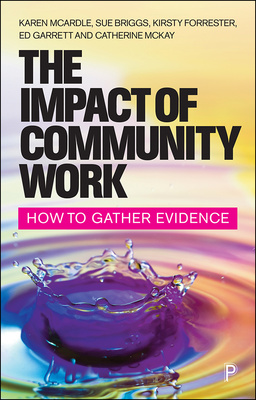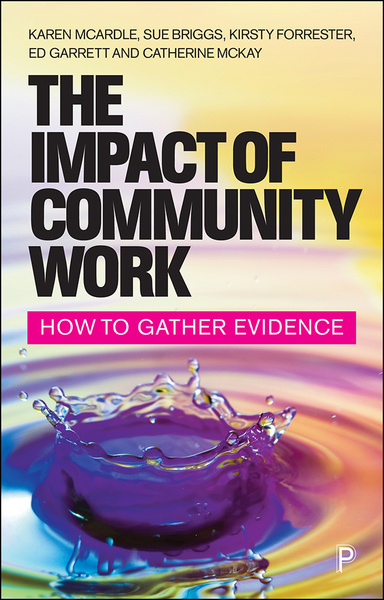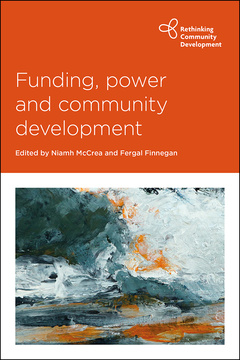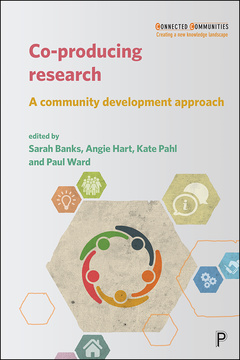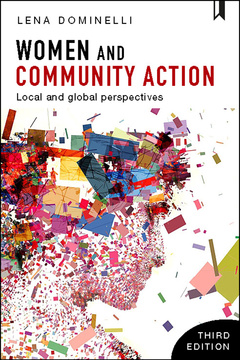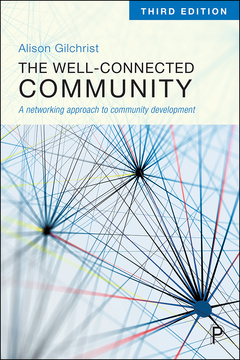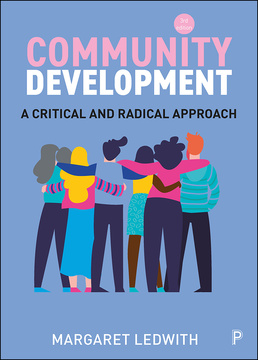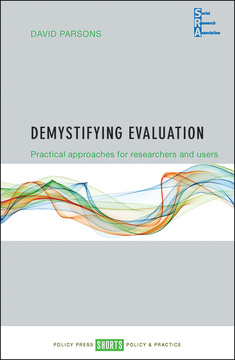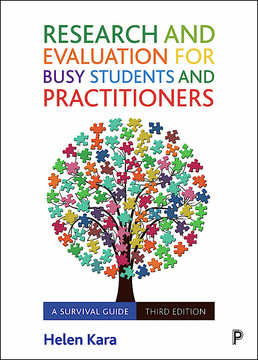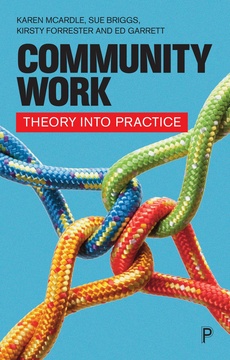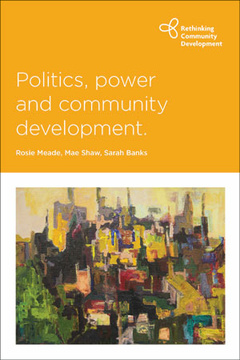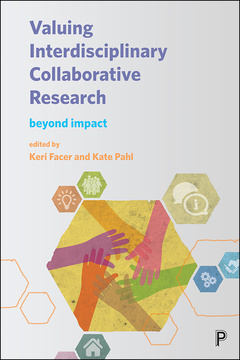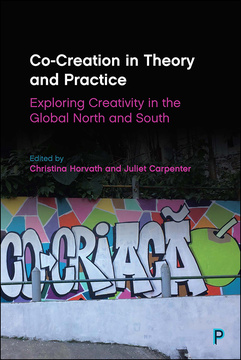The Impact of Community Work
How to Gather Evidence
By Karen McArdle, Sue Briggs, Kirsty Forrester, Ed Garrett and Catherine McKay
Published
Jul 21, 2020Page count
286 pagesISBN
978-1447343943Dimensions
216 x 138 mmImprint
Policy PressPublished
Jul 21, 2020Page count
286 pagesISBN
978-1447343967Imprint
Policy PressPublished
Jul 21, 2020Page count
286 pagesISBN
978-1447343967Imprint
Policy PressWatch the author team talk about the book:
In the media
On our blog: Helping the vulnerable through the pandemic – the vital role of the community worker
On our blog: Why community work is now more important than ever
On our blog: Leaning into the crisis: Community work during COVID-19
View the authors’ three short films focused on further strengthening practice through professional learning, available through the CLD Standards Council in Scotland: The Impact of Community Work: How to Gather Evidence
This book provides essential guidance for professionals and pre-qualifying students on how to gather and generate evidence of the impact of projects in the community.
Including case studies from diverse community settings, it provides easy to implement, practical ideas and examples of methods to demonstrate the impact of community work.
Considering not only evaluation, but also the complex processes of evidence gathering, it will help all those involved with work in the community to demonstrate the impact and value of their work. The book provides:
•guidance for how to present different findings to different audiences;
•methods for effectively demonstrating the value of your work;
•how to demonstrate the scale, quality and significance of impact.
“A vital text for anyone working with, for and in community settings. The text draws together theory and practice in an accessible format ensuring that everyone – students, practitioners and academics – can evidence the impact of important community-based work. The book will also support leaders, funders and policy makers to understand the particular nature of evidence generated in community settings and as such, is a vital contribution to the field.” Kaz Stewart, University of Cumbria
"At last, a book that emphasises Community Development's responsibility to provide evidence that it meets its transformative purpose - on every level, local to global - excellent!" Margaret Ledwith, University of Cumbria
“An innovative, highly useful overview of the tools available to effective community workers in their necessary dance between thought and action, interwoven with a rich diversity of globally sourced case studies.” Frances Crawford, University of New England
“A helpful and thought-provoking text for community workers that strikes a good balance between examples of practice underpinned by theory. Posing challenging questions, it will help community workers and managers alike to reflect on and improve their practice.” Sheila Brown, Education Scotland
“The Impact of Community Work: How to Gather Evidence is an impressive integration of theory and practice guiding community workers through the rationale, methods, and ethics for assessing community-based programs… an essential reference book for anyone engaged in community work.” Educational Action Research
“This book addresses a complex topic in an accessible way. By doing this, it makes a significant contribution to the conversation about positive change within communities and the community services.” Australian Social Work
Karen McArdle has worked in the community development field for over 30 years and taught evaluation to professionals across multiple community contexts.
Kirsty Forrester has worked extensively as a community learning and development worker in local authority, third sector, social work and health settings.
Catherine McKay has worked for 37 years in Community Learning and Development at local and national policy levels across Scotland.
Ed Garrett combines an academic background in research and teaching with over fifteen years’ experience as a community development worker in the voluntary sector.
Sue Briggs is a local authority development officer with experience of managing quality improvement approaches, professional development and community learning development practice.
Introduction
Part One
Impact, Evidence and Transformation ~ Karen McArdle
Power, Empowerment, Impact and Voice ~ Karen McArdle
A Challenging Context in which Values Matter ~ Karen McArdle
Part Two
Presenting Findings to Different Audiences ~ Catherine Mckay and Karen McArdle
Planning and Evaluating ~ Karen McArdle, Kirsty Forrester, Ed Garrett
Anecdote and Observation ~ Ed Garrett, Karen McArdle
Questionnaires ~ Karen McArdle and Kirsty Forrester
Interviews and Focus Groups ~ Karen McArdle, Kirsty Forrester, Ed Garrett
Narrative Inquiry ~ Karen McArdle
Collaborative and Participatory Approaches ~ Karen McArdle
Social Impact Studies ~ Ed Garrett
The Long Haul, Longitudinal Studies ~ Karen McArdle, Catherine Mckay
What everyone needs to know, Management Information Systems (MISs) ~ Sue Briggs, Kirsty Forrester, Karen McArdle
Using Others, Secondary Data ~ Kirsty Forrester and Karen McArdle
Knowing Ourselves, Self Evaluation ~ Sue Briggs, Karen McArdle
Part Three
Reflections, Valuing Community Work ~ Karen McArdle, Sue Briggs, Kirsty Forrester, Ed Garrett and Catherine McKay







